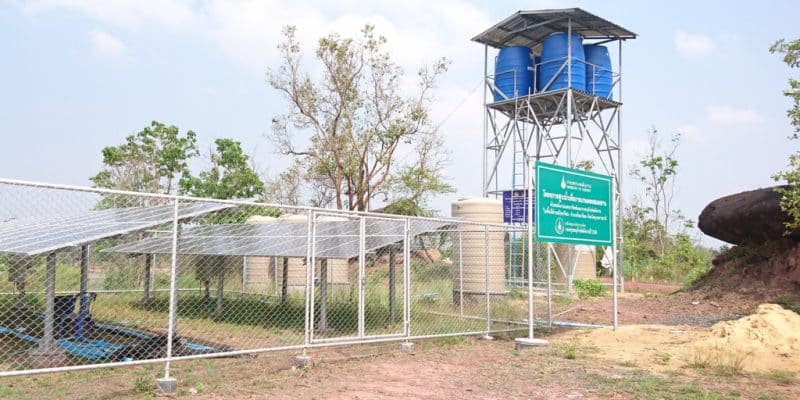The Netherlands Development Organization (SNV) is launching the construction of 10 solar-powered water supply systems in the Upper West Region of Ghana as part of its Healthy Future for All (HF4A) project. The new solar-powered facilities will improve the drinking water supply for 2,000 people.
Residents of the Nandom Township and Lambussie District in the Upper West Region of Ghana will benefit from 10 potable water supply (PWS) systems. On July 30, 2022, the Netherlands Development Organization (SNV) launched the works in Lambussie. The goal is to improve the living conditions of 2,000 people, including children under five in health facilities, schools and communities.
Read also –
The future systems will be equipped with pumping, storage and distribution facilities for potable water. Solar panels will also be installed to power all of the PEAs. With an estimated population of 31.7 million, more than 3 million people still lack access to quality drinking water in Ghana, according to a 2018 report by French company Veolia.
Helmsley Charitable Trust funding
In Nandom and Lambussie, SNV also plans to build 4,000 home sanitation facilities, as well as 50 dedicated handwashing facilities to boost hygiene. According to the International Water Association (IWA), in 2019, 22% of Ghanaians still practice open defecation, including 4.2 million people in rural areas where the practice is particularly prevalent.
The work in Ghana is part of SNV’s Healthy Future for All (HF4A) project. The initiative, funded by The Leona M. and Harry B. Helmsley Charitable Trust in the United States, aims to improve access to water, sanitation, hygiene and nutrition for all. The HF4A project will also increase positive behavioral changes in water, sanitation and hygiene (WASH) and food hygiene.
Inès Magoum






